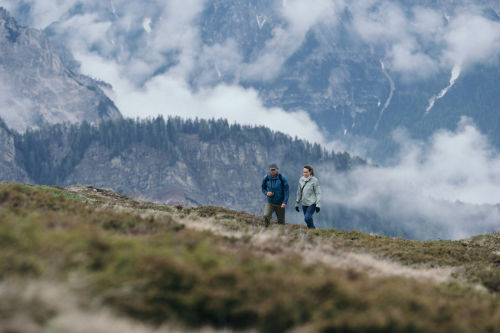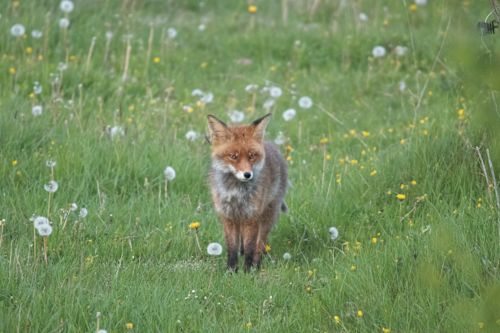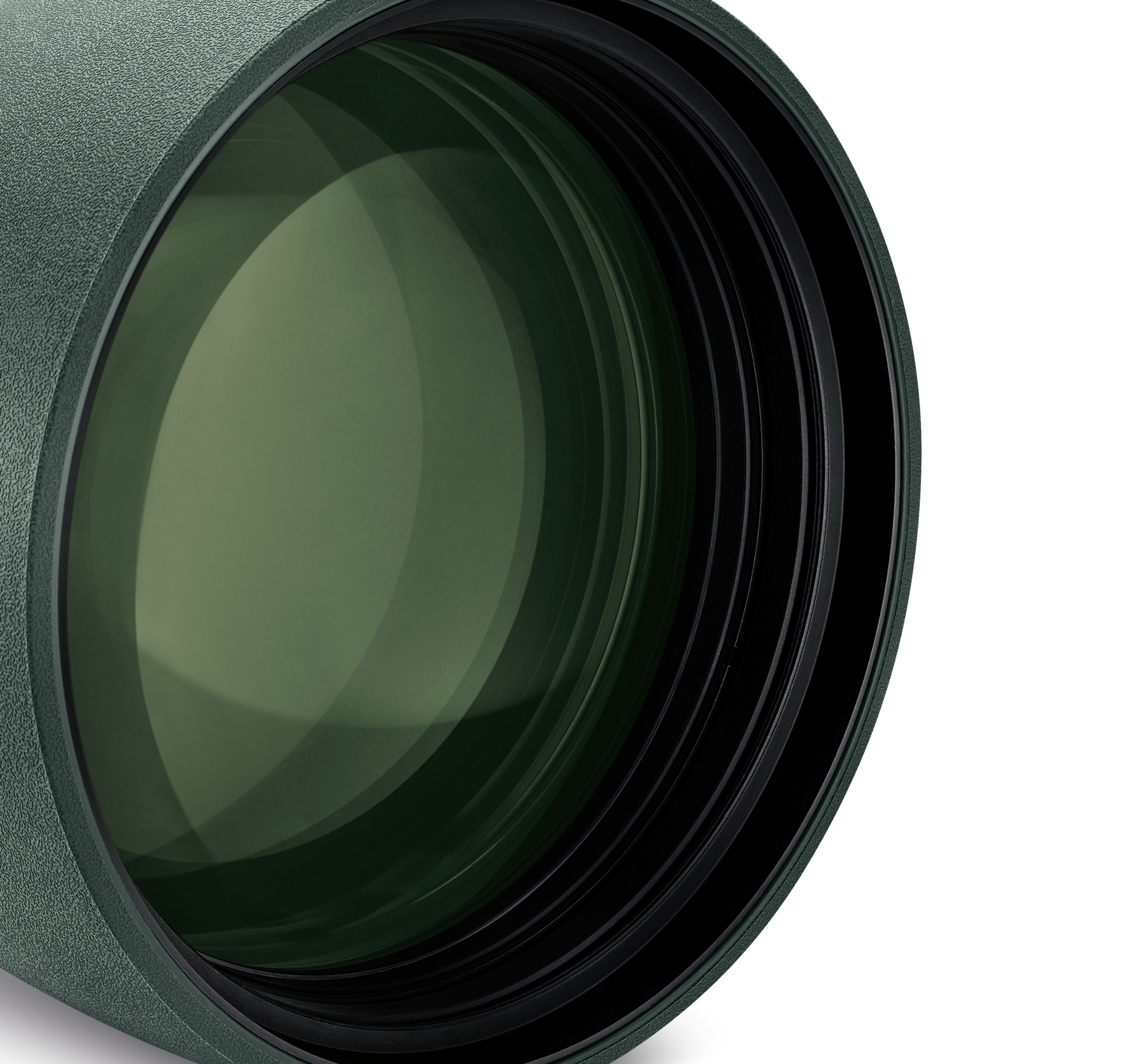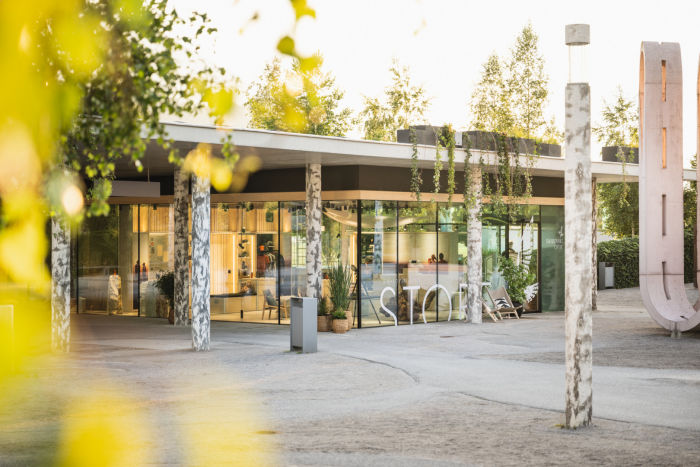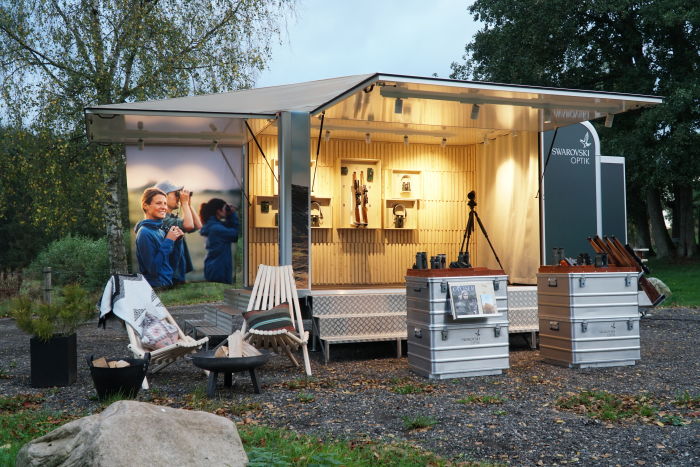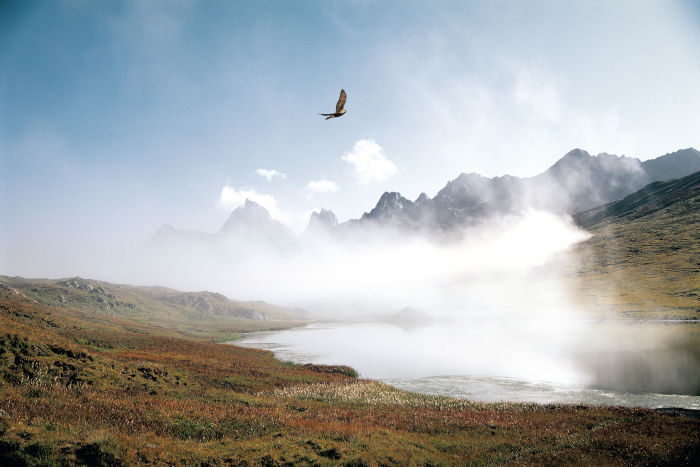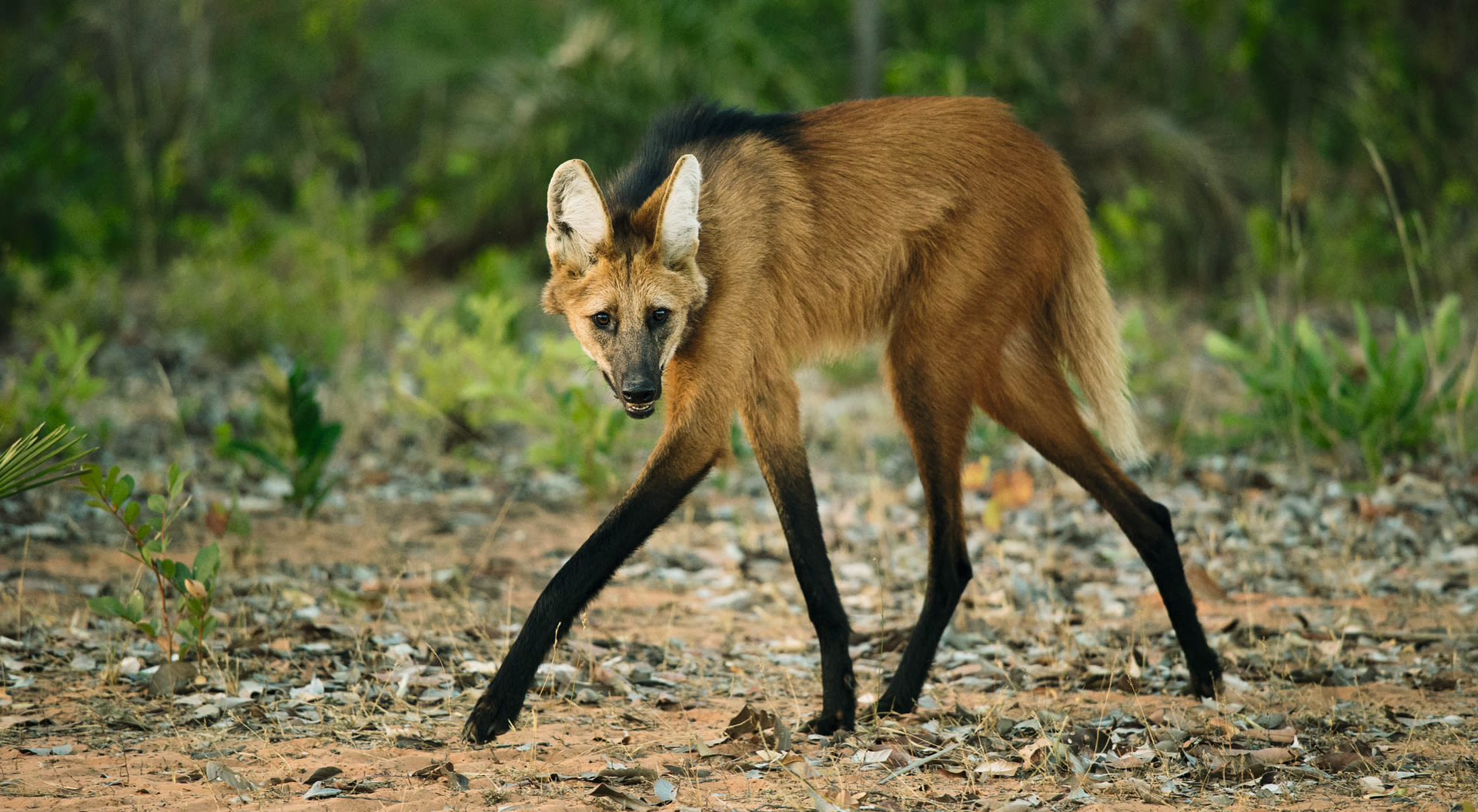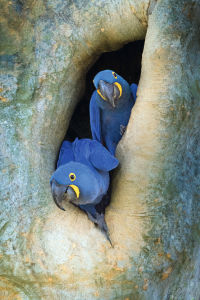The lamps along the ancient stairway flicker like strobe lights for several indecisive minutes. From the forest’s edge, the evening’s first hungry mouth emerges. Like a fox on stilts, its appearance is striking: chocolate legs, orange back, snow-capped tail, and a dark mane below enormous radar-dish ears that swivel independently in constant assessment. As usual, the Maned Wolf is making an entrance!
As dusk falls, bathing the landscape in an orange glow, the scene changes and cues the nightshift of frogs and insects to begin their evening symphony. I see a Bat Falcon leaving its perch at the church’s spire. Unnoticed, two more hungry mouths arrive on scene. The largest among them asserts its dominance with a display of teeth gnashing and growling, sending the first dinner guest back into the shadows.
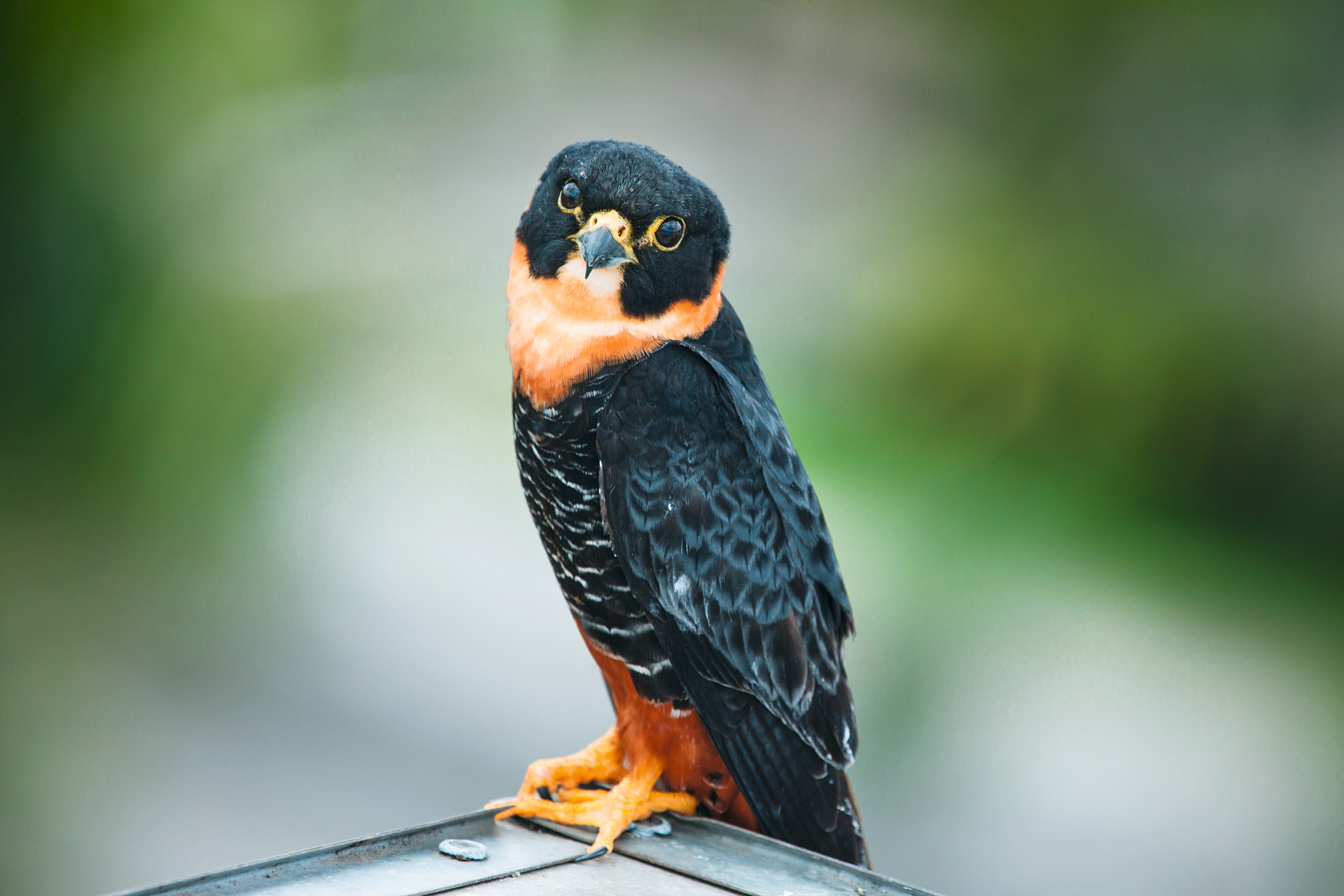
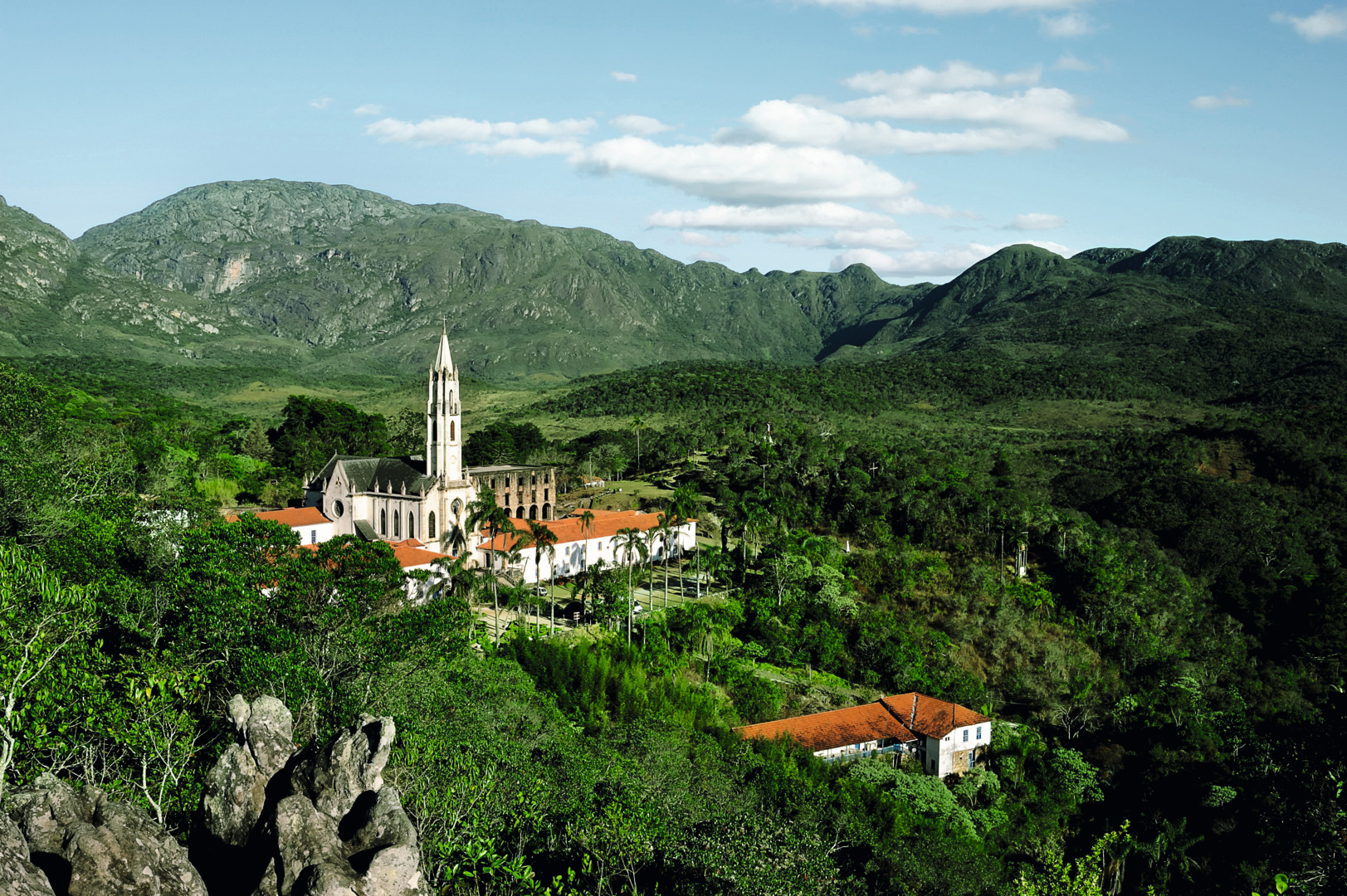
Maned Wolves have been feeding on dinner scraps provided by the resident Catholic priests at the Santuário do Caraça seminary in Minas Gerais, Brazil since the early 1980s. Since that time, the arrival of these giraffe-like carnivores has become a ritual at dusk. Habituated? Yes. Tame? Not by any means! These are wild animals rarely seen at any other time of day, though their tracks in the soft dirt can be seen along the many surrounding trails up the mountains and through the thick forest.
This is a paradise for birding by day, capped off by a tense evening performance: the arrival of the wolves, which can be experienced here like nowhere else. One at a time and in a posture of extreme suspicion, the Maned Wolves ascend the steps of the church, making quick work of scraps and bone, just whiskers away from a captivated nightly audience of naturalists and casual tourists.
About the author:
Rick Bateman is a freelance writer and “bird nerd”. He was born in the US, studied in Ohio and Leipzig and lives now in Tyrol, Austria. He travels the world and brings the beauty of nature to people through his writing.
Find out more about the Santuário do Caraça, browse through our travel tips for Brazil or take a look at our list of recommended items that you should not forget to pack when visiting South America’s largest country.

